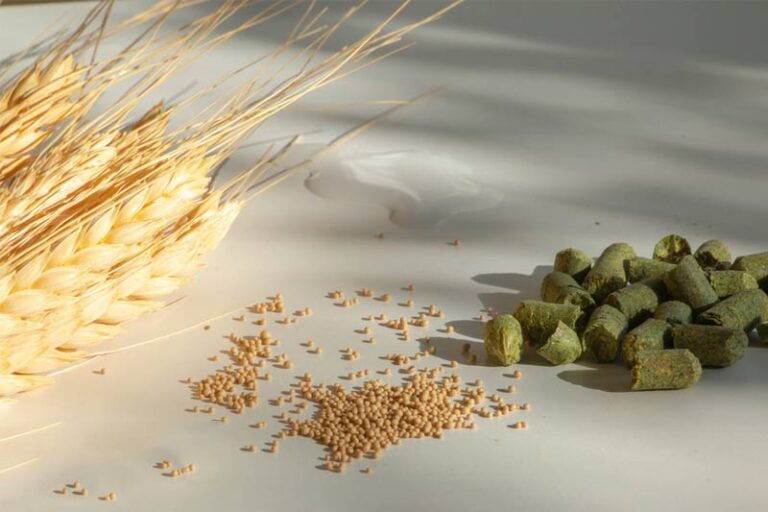All beers are made up of a complex set of flavors, and everyone perceives each flavor differently. In the home brewing process, off-flavors can be a headache, affecting not only the flavor of the drink but also the quality and taste of the beer. Identifying and solving these off-flavor problems is a key step to ensure successful brewing. In this article, we will take a deep dive into the types of off-flavors that may occur during beer brewing and their solutions to help you ensure that you brew beer with a pure flavor.
Table of Contents

Identifying Types of Off-Flavors
My Beer Smells Buttery
Your beer smells like buttered popcorn, or like butterscotch. The presence of buttery off-flavors makes beer slippery in your mouth and on your tongue. Often referred to as the brewer’s “original sin,” diacetyl is present in nearly all beers, but in low concentrations. Usually, small amounts of buttery flavors are tolerated in ales and stouts, but it is considered a brewing defect in lagers.
Diacetyl is produced during fermentation. However, it is often reabsorbed by the yeast. If diacetyl is not fully reabsorbed, a buttery flavor results. This is caused by mutant or weak yeast, low fermentation temperatures, insufficient oxygen, or short boil times.
My Beer Smells Corny
Dimethyl sulfide smells like cooked cabbage, sweet corn, shellfish, ketchup, or even oysters.
How is it produced? This is a desired flavor in some ales and pale lagers, while in other beers, it is an off-flavor. Certain compounds produced during the malting process convert to dimethyl sulfide when heated. It is primarily produced during the wort production process. DMS is more prevalent in lagers and pale lagers and can also be caused by bacteria in contaminated beer. To remove this odor, make sure you boil your wort long enough to evaporate the DMS.
My beer smells like rotten eggs
Hydrogen sulfide is an easy odor to identify. You’ll smell a distinct smell of rotten eggs, boiled eggs, sewage, or burning matches.
Hydrogen sulfide is a byproduct of yeast fermentation and is present in all types of beer in varying concentrations. Low concentrations of hydrogen sulfide give the beer a “fresh” flavor, but at higher concentrations, it can create off-flavors. Conditioning or storing your beer after primary fermentation can ensure that any remaining sulfurous flavors are gone.
My beer smells musty
The presence of TCA can be identified by trichloroanisole making your beer smell like a damp cellar and mold. TCA is usually caused by fermentation taking place in a damp space. To avoid this, make sure your brewing area is free of moisture and has low humidity levels.
Causes of Odors During Home Brewing
Soaking Grains
Grain soaking is the first step in making homemade beer. It involves extracting flavor, aroma, and color from the grains. To soak the grains, you have to soak a bag of grains in hot water. This process produces a not-so-noticeable odor. This odor is completely safe and non-toxic. To eliminate this odor, you should soak the grains in an open area.
Cooking Hops in Wort
This is the sweetest aroma produced when brewing beer. When you boil wort (water soaked with malt extract), you get a rich aroma that fills the room. This sweet aroma smells completely safe and many people love it. Since malt extracts are a necessity for brewing beer, you can’t replace them with other substances. To avoid this odor bothering you or your neighbors, you should cook wort in a well-ventilated area.
Aeration before fermentation
Aeration is just a fancy term that means shaking the fermenter before closing the sealed lid. Yeast needs oxygen to ferment the beer, so you should shake the fermenter to increase the oxygen content in the beer. The odor produced when aerating is not strong, but slightly noticeable.
Leakage during fermentation
Another situation where homebrew beer can produce odors is during the fermentation process. If you don’t seal the fermenter properly, you will smell fermentation (smells like compost). You should seal the fermenter properly so that your beer can ferment quickly without problems.
Yeast problems
If expired or improperly stored yeast is used, abnormal odors may occur. Poor-quality yeast may release undesirable chemicals during the fermentation process, causing off-flavors.
Improper temperature control

Raw material quality problems
Poor quality or expired raw materials may contain undesirable ingredients that may release off-flavors during the fermentation process. In particular, fruits, malt, or sugars, if they are not fresh, may hurt the final product.
Odor solutions in beer brewing
- Disinfection of home-brewed beer equipment: A common reason for off-flavor in home-brewed beer is the presence of anaerobic bacteria in the beer. These bacteria are harmful and can make your beer sick. The best way to eliminate bacteria is to properly disinfect your home-brewed beer equipment.
- Brew beer in a wide space: If you don’t like the smell or aroma of beer during the brewing process, you should not brew beer in a small apartment. Maintain proper ventilation in the fermentation environment to avoid excessive oxygen entering the fermentation liquid and reduce the growth of acetic acid bacteria.
- Check and adjust the yeast: Make sure the new yeast used is fresh and stored according to the recommended storage conditions. Before fermentation begins, activate the yeast and check its activity.
- Monitor fermentation temperature: Use a thermometer to ensure that the fermentation liquid remains in the temperature range suitable for yeast (usually 20-25°C). Use fermentation temperature control equipment to maintain a stable temperature when necessary.
- Choose high-quality ingredients: Purchase fresh, reliable quality ingredients, especially fruits, and sugars. Make sure all ingredients are within the shelf life and stored in a suitable environment.
How to prevent the generation of odor?
- Check the fermentation status regularly: Check the bubble frequency and specific gravity of the fermentation liquid regularly to ensure that the fermentation process is normal. If problems are found, adjust them in time.
- Record and analyze data: Record the temperature, time, raw materials, and yeast usage of each brewing. These data can help you analyze problems and improve the brewing process.
- Learning and training: Learn more about fermentation and brewing by learning brewing techniques and participating in training to help you better deal with various problems.
- Avoid oxygen contact: Minimize oxygen contact throughout the brewing process to prevent the growth of harmful microorganisms such as acetic acid bacteria, which leads to odor.
- Proper ventilation: Maintain proper ventilation of the fermentation environment to prevent excessive carbon dioxide accumulation, but avoid direct exposure to the air to reduce the risk of infection and odor.

FAQ
I found that the beer has an acetic acid smell. How to solve it?
The acetic acid smell is usually caused by contamination with acetic acid bacteria. This situation may be caused by the entry of oxygen into the fermentation liquid. Make sure that the fermentation barrels and bottles are thoroughly cleaned and disinfected before use, and are well sealed to prevent the entry of oxygen. Consider using anti-oxidation measures during the fermentation process, such as using fermentation locks.
How to deal with yeast smell?
The yeast smell is a common phenomenon during the fermentation process, and it usually disappears gradually after the fermentation is completed. If the yeast smell is too strong, it may be due to insufficient fermentation time or improper temperature. Make sure the fermentation process is fully carried out and perform appropriate clarification after fermentation is completed. The yeast smell can be reduced by cooling or filtering.
How to deal with beer that has already developed an off-flavor?
Once the beer has an off-flavor, it is difficult to repair. You can try to extend the fermentation time and perform appropriate clarification treatment (such as cooling or filtering), but these methods do not always eliminate the off-flavor. The best way is to prevent it from the source and ensure that appropriate measures are taken during the brewing process.

